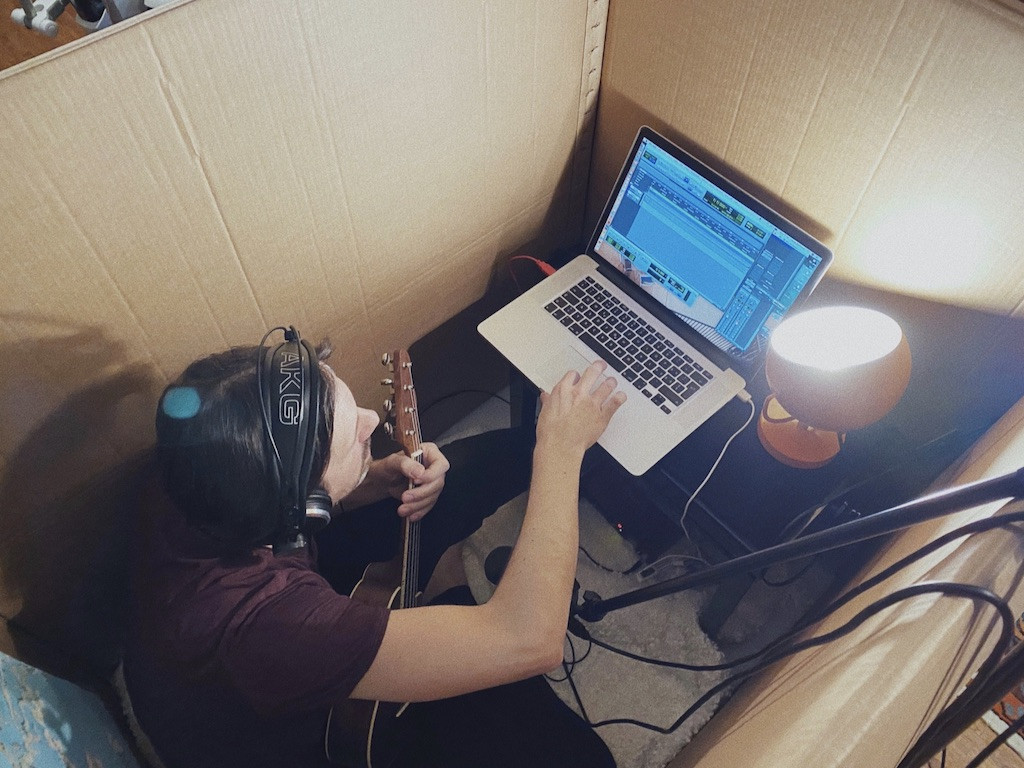This period of confinement has forced artists who earn their living from live performance to rethink the way they work and engage with audiences. For the first weeks of confinement Luxembourg musician Daniel Balthasar was preoccupied with making sure his family was safe and in good health. He is the father of two children and husband of photographer Véronique Kolber, whose exhibition at the Cercle Cité, “Fictitious location spotting for a non-existing movie”, was cut short by the start of the lockdown.
But it was a giant cardboard box that had been used to store and transport Kolber’s photographs that would eventually prove to be the catalyst for Balthasar to start being creative again.
“As an allegory to our current situation, I wanted to create music in a confined space but push it to a maximum,” he explains. He moved the box from the basement to his home studio and decided to force himself into writing and recording inside it. “One song per day over the course of 10 days.”
The release of the album, on 20 April, is accompanied by a self-made video for opening track "Anywhere", filmed and hand-drawn by Kolber, consisting of 2,000 pictures made like a flip-book. Check it out here.
Balthasar gave himself restrictions, like only using what could fit in the box, which meant he ended up with a ukulele, guitars of all kind, snare drums and a little keyboard that he used with the synthesizer programmes on his laptop. “As the days went on, I also discovered that I could make sounds with the box itself, hammering against the walls with a stick or scratching noises against the surface of the cardboard.”
Balthasar would sneak into the box whenever he had the opportunity and force himself to finish the song the same day he had started it before going to bed. The result is what he calls a kind of quarantine diary. “It is the documentation of one of the strangest periods in my life. These songs cannot save the world nor cure the sick. But they gave me purpose and helped me to stay sane in an unprecedented situation.”
Balthasar admits that the resulting tunes are short and unpolished--the album, titled “The long lost art of getting lost”, is just 25 minutes long. But songs like ‘Get out more often’, ‘What do we learn from this’, ‘How will it end’ and ‘Safe’ resonate deeply with this listener. They are delicate, beautiful songs artfully arranged and often containing surprise elements, yet totally accessible. Balthasar sings about the yearning, boredom and melancholia he feels during confinement, but also about how fortunate he feels surrounded by his family, and his hope for the future.
No doubt by the end of the year many artists will have made records chronicalling the coronavirus and its impact on communities, nations and the world--I would expect no less from the likes of Sleaford Mods or Childish Gambino. But Daniel Balthasar’s wonderfully personal approach is arguably the first great coronavirus confinement album.
Daniel Balthasar’s “The long lost art of getting lost” is released on digital platforms on 20 April. Check out www.danielbalthasar.com.
